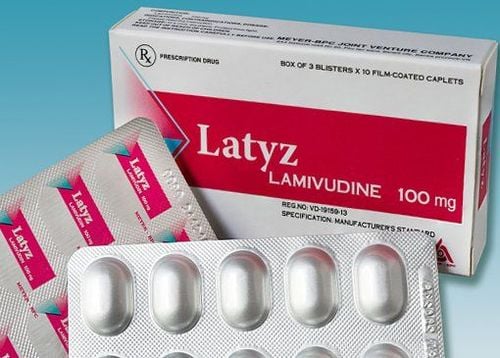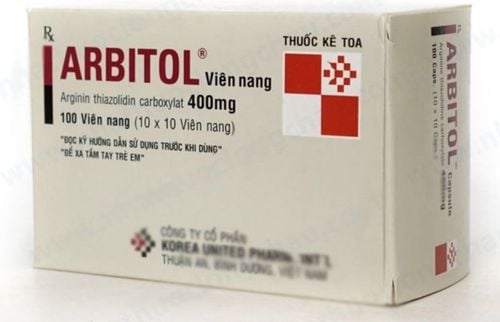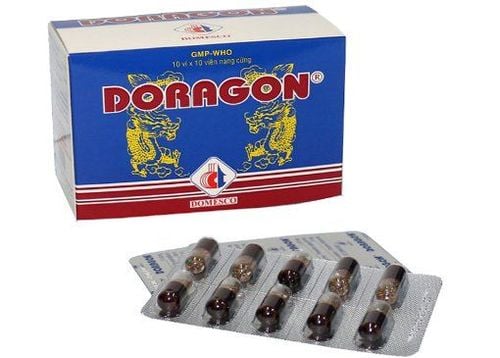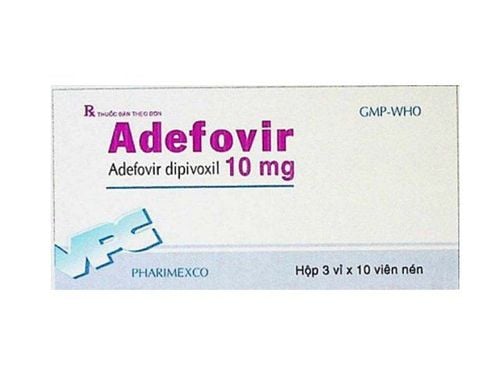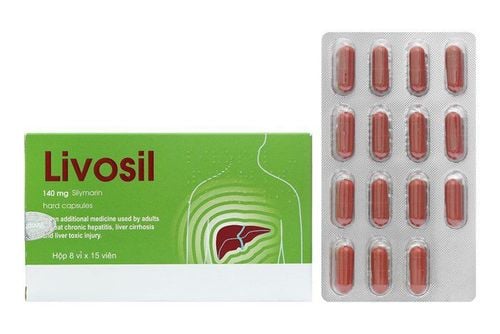This is an automatically translated article.
Agifovir 300mg drug whose main ingredient is Tenofovir disoproxil fumarate belongs to the group of antiretroviral drugs, so it is often used to treat chronic hepatitis B and HIV type 1. Side effects of Agifovir often occur when used as monotherapy. Hepatitis B or combination of antiretroviral drugs in HIV treatment should be noted when there are abnormal symptoms after using the drug.
1. What is Agifovir?
Agifovir 300mg is produced in the form of tablets containing the main active ingredient, Tenofovir disoproxil fumarate, which is rapidly absorbed and converted to the biologically active Tenofovir. The drug inhibits HIV and HBV replication by competing with deoxyadenosine-5-triphosphate into the viral DNA chain. Since then, the drug inhibits reverse transcription so that the viral DNA cannot be formed to attack the host cell nucleus. Agifovir is indicated in the following cases:
1.1 Treatment of HIV Agifovir in combination with other antiretroviral agents for the treatment of HIV type 1 infection in adults and children 12 years of age and older. This indication is based on analysis of HIV-1 plasma RNA levels and CD4 cell counts in patients who have not received prior antiretroviral therapy and who have received prior antiretroviral therapy. When initiating HIV-1 treatment with Agifovir, care should be taken not to combine the drug with combination products in the formulation containing tenofovir and adefovir dipivoxil. The drug also helps prevent HIV exposure for people who are likely to become infected after being exposed to the source of the disease.
1.2 Treatment of chronic hepatitis B Agifovir is also indicated for the treatment of chronic hepatitis B in adults, patients with chronic hepatitis B with compensated liver. Tenofovir has not been evaluated in patients with decompensated liver disease. Therefore, patients should consult their doctor or pharmacist before using.
2. How to use Agifovir?
Agifovir 300mg is made in the form of film-coated tablets, so the patient will take the drug orally with water. For patients newly exposed to the source of the disease, it is necessary to use the drug as soon as possible and continue treatment for 28 days. Note that the body will absorb the drug best when taken on a full stomach. The usual therapeutic doses are as follows:
Adults with chronic hepatitis B: 1 tablet/day for 48 weeks HIV patients: 1 tablet/day in combination with other antiretrovirals Prevent HIV exposure after illness Patients in contact with the source of infection: 1 tablet/day in combination with other antiretroviral drugs. Patients with impaired renal function: creatinine clearance 30-49 ml/min, use once/48 hours, if creatinine clearance from 10-29 ml/min, once every 72-96 hours Dialysis patients: once every 7 days or 12 hours after dialysis
3. Agifovir side effects
Patients using Agifovir may also experience some side effects such as:
Rash, headache, dizziness, sleep disturbances, weakness, increased sweating Vomiting, diarrhea, flatulence , dyspepsia, pancreatitis Hyperglycaemia, neutropenia Elevated liver enzymes Decreased renal function, acute renal failure, Fanconi's syndrome Elevated levels of lactic acid when combined with antiretroviral drugs
4. Be careful when using Agifovir
Agifovir treatment should be discontinued if there is a rapid increase in aminotransferase levels, fatty liver or progressive hepatomegaly, metabolic acidosis. Agifovir should be used with caution in patients with hepatomegaly or other risk factors for liver disease. Particular caution should be exercised in patients with concomitant hepatitis C infection who are being treated with interferon alfa and ribavirin, as there is a risk of exacerbation of hepatitis when tenofovir is discontinued in these patients.
Renal function and serum phosphate should be monitored prior to initiating therapy in patients with renal impairment, every 4 weeks for the first year, then every 3 months. If serum phosphate levels are markedly decreased or creatinine clearance is less than 50 ml/min, renal function should be monitored within 1 week and the dosing interval may need to be adjusted or treatment discontinued.
Tenofovir disoproxil fumarate may be associated with bone density and patients should be monitored for signs of bone abnormalities and should be considered for patients with a history of fracture or for older adults, women at risk reduced bone density.
Above is important information about Agifovir 300mg drug, hopefully with the above sharing will help you understand the mechanism and how to use the drug effectively and safely.
Please dial HOTLINE for more information or register for an appointment HERE. Download MyVinmec app to make appointments faster and to manage your bookings easily.




